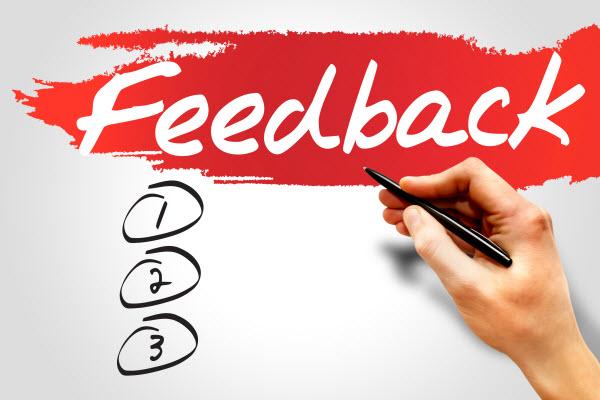Failing To Relate To Stress As Feedback
Dr. Mort Orman here and today I want to highlight another very common cause of human stress.
This is an internal cause which I call “Failing To Relate To Stress As Feedback.”
Feedback Or Failure?
Did you know that you have a big choice to make in how you relate to stress?
When we feel stressed, we’ve been taught to believe things are “going wrong.”
However, when feeling stressed, we don’t have to remain trapped within this automatic assessment that things are “going wrong.”
Instead, we can choose to adopt a “feedback” perspective.
This means assuming that life is going exactly the way it should be going whenever we are thinking or behaving in ways that are not very productive.
“Failure” Is A Fairy Tale
When things aren’t going as you like in your life, there’s a very strong tendency to consider something must be “failing.”
Either you are failing, or other people are failing, or life itself must be failing, because you aren’t achieving what you expect to achieve.
The problem with looking at life this way is that it’s a disempowering story.
In other words, it’s a negative “fairy tale” that you tell yourself or you tell other people.
Whenever you view life or yourself as “not working,” you immediately surrender a certain amount of your power.
A strongly negative mindset comes along with this story, and it often makes you feel unable to have what you want.
In some cases, it can even cause you to conclude that having what you want is not really possible.
On the other hand, adopting a “feedback” perspective puts you in a much more positive and affirmative mindset.
It doesn’t suggest that you are not capable, nor does it say that achieving what you want (happiness, success, finding a job, playing better golf, etc.) is not really possible.
YOU Take The Driver’s Seat
Rather, when you adopt a “feedback” perspective, it puts YOU back in the driver’s seat.
After all, if not getting what you want (or feeling how you want) is nothing more than “feedback” that you need to interact with life differently and more effectively, then all you have to do is acquire some additional skills, knowledge, training or support, and bingo—you’re on the way to future success.
Does this mean success will definitely come your way, or that it will always come easily? Certainly not.
Does it mean you will easily be able to determine exactly what skills, knowledge, training or types of support might be missing and you need to acquire? No, again.
But you are now on the hunt, and you are positioned positively and not negatively.
Living With Little Or No Stress
Take the idea of living your life with little or no stress.
Do you know how many people have totally given up on this idea?
They have already concluded that this isn’t possible (i.e. that stress is either a failure of life or a failure of themselves).
If, on the other hand, however, they reject this “failure” story and adopt a “feedback” perspective, they might be inclined to explore questions such as:
- What do I need to change or improve about the ways I think about stress that might help me overcome it?
- What myths have I bought into about stress, or about myself as a human being, that might be holding me back?
- What strategies do I have for dealing with stress, and just how good are they?
- Are there other, better strategies for dealing with stress that I don’t currently know about, or that I haven’t yet learned to apply?
- Who are the people who could help me learn how to deal with my stress more successfully?
- If I do accept the premise that I could live my life without much stress, am I willing to do whatever it takes for me to find out how to do this?
What If Life Is Always “Working?”
When something happens and you feel stressed or you don’t get the outcomes you want, is this a sign that life isn’t working, or is it a sign that life actually is working, and it’s always been working for thousands of years?
Said another way, if you are approaching achieving your goals in life (big or small) incorrectly (or ineffectively) isn’t life “working” when you end up not reaching your goal? Isn’t that the very outcome that should be occurring?
For example, if you buy a new computer program and never read the operating instructions, isn’t life working perfectly when you try to use the program and run into difficulties?
Isn’t this exactly what should be happening?
So you could either say that you are defective or the computer program is poorly designed, or you could adopt a feedback perspective and say “I guess that’s how life turns out when you don’t do things the way you should.”
“Maybe I should take this apparent failure and use it as feedback that I need to approach the task in a different and better way.”
You see, this is the real difference between going with the automatic, socially-accepted notion that things “just aren’t working” vs. adopting a “feedback” perspective, which means that “life is always working— just the way it should.”
So if you aren’t getting what you want from life, you must not be thinking in the right ways or behaving in the right ways to achieve it (assuming that what you want is humanly possible to achieve).
And if you take this as a sign of feedback (from life), you can choose to make changes, learn how to interact with life and other people more effectively, and eventually achieve what you want.
To your health, happiness and success,
Dr. Mort Orman, M.D., International Speaker, Author And Founder Of The Stress Mastery Academy | http://DocOrman.com


